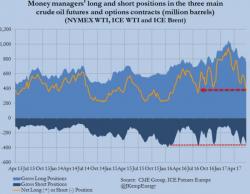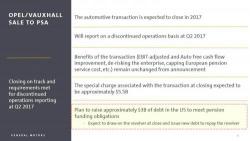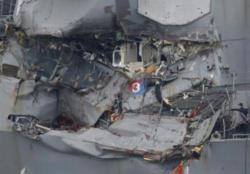Hedge Funds Abandon OPEC, Near 'Shortest' Since Oil Crisis Began

While the fundamental outlook for oil appears weak, with U.S. shale drillers continuing to add extra rigs (despite the downturn in prices), Reuters' John Kemp warns that positioning data suggests the risk of a short-covering rally is increasing.
The hedge fund community placed enormous faith in OPEC’s ability to accelerate oil market rebalancing through cuts announced late in 2016 in association with key non-OPEC producers.


